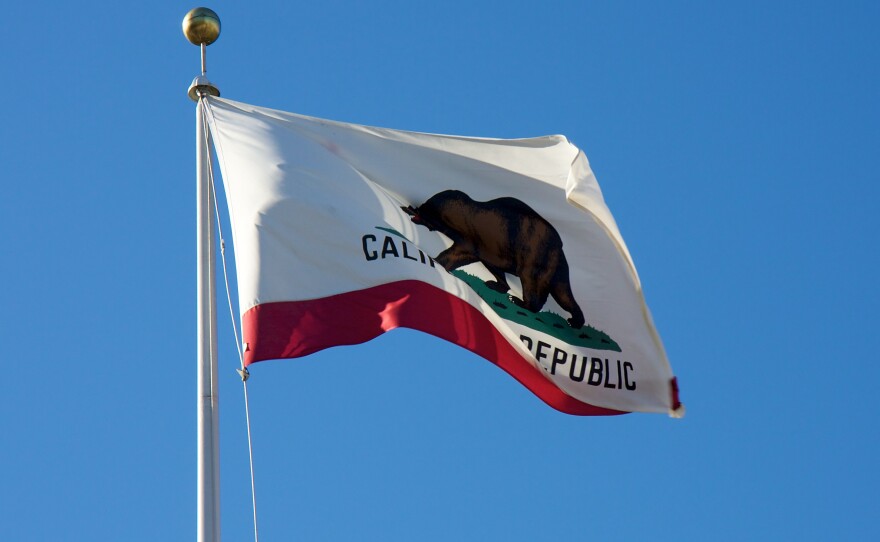A statewide California Counts survey found state Attorney General Kamala Harris holds a commanding lead in the race for U.S. Senate over her opponent, Congresswoman Loretta Sanchez.
Harris received support from 51 percent of registered voters surveyed compared to Sanchez’ 19 percent. Twenty-four percent of those polled remain undecided between the two candidates while 36 percent of Republicans surveyed are uncommitted in the race.
“It would take a comeback of unprecedented magnitude for Sanchez to overtake Harris at this point,” said David Barker, director of Sacramento State’s Institute for Social Research and its CALSPEAKS public-opinion project.
Both Harris and Sanchez are Democrats. This is the first time two members of the same party have faced each other in a race for the U.S. Senate since California adopted the top-two primary. They are running to replace another Democrat, retiring U.S. Sen. Barbara Boxer.

The statewide poll also asked several questions about how voters feel about living in California, state pride and the attainability of the California dream. It surveyed attitudes about Proposition 64 on recreational marijuana, the economy and immigration, among other issues.
Nine topline poll takeaways
- Proposition 64, which seeks to legalize the sale and consumption of marijuana, received overwhelming support from Democrats but also a majority of support from Republicans in the state. Eighty percent of Democrats said they would vote for the proposition in November, while 53 percent of Republicans said they would vote for it.
- Proposition 57, which would make changes to criminal sentencing laws to increase parole opportunities for felons convicted of nonviolent crimes, saw strong support from both parties, with 80 percent of Democrats and 56 percent of Republicans in favor.
- Proposition 63, which seeks to limit purchases of high-capacity magazines and require background checks for ammunition purposes, received overwhelming support. Ninety-three percent of Democrats and 60 percent of Republicans are in favor of the proposition.
- Asked directly about mass shootings, Californians are split on whether civilians with concealed weapons would be helpful or make a potential situation more dangerous: 33 percent responded citizens with concealed weapons would be helpful and 40 percent indicated it would make the situation more dangerous; 9 percent reported neither and 19 percent were uncertain.
- Republican presidential nominee Donald Trump receives the lowest rating of any candidate or group on a “feeling thermometer.” Seventy-one percent of those polled give him a negative or “cold” rating, while only 17 percent of Californians have “warm” feelings toward Trump.
- On Democratic presidential nominee Hillary Clinton, 47 percent of respondents rate her “warm” compared to 41 percent who feel “cold” toward her.
- When asked about undocumented immigration, a majority of survey respondents defined it as a problem, with 45 percent saying it is a “major problem” and 29 percent saying it is a “minor problem.”
- The ability to buy a home is seen as “unattainable” among those who make less than $30,000 per year in family income. But even for those who reported making over $100,000 per year, 63 percent said that home ownership isn’t a realistic goal.
- Asked to think about the future, Californians were split on optimism versus pessimism: 36 percent say they are more hopeful than scared compared to 43 percent who say they are more scared than hopeful.
“Overall, Californians appear remarkably proud, progressive, and pessimistic,” Barker said.
“They strongly oppose Mr. Trump's candidacy, while overwhelmingly supporting gun control, marijuana legalization and the minimum wage (but they do express ambivalence and uncertainty when it comes to free trade). More broadly, they tend to express great warmth toward their state, but they worry that elements of the California dream like owning a home and retiring comfortably are no longer within reach.”
The Institute for Social Research at Sacramento State fielded the survey online and through the mail from Aug. 15 to 24, 2016, using the CALSPEAKS survey panel. It yielded 915 completed surveys and 44 partially completed surveys. CALSPEAKS obtains a representative sample of Californians, stratified by the five major regions in the state. For information on the methodology, please visit: www.csus.edu/isr/calspeaks/. The margin of error for the distribution of responses on any individual survey item is equal to or less than +/- four percentage points.
California Counts is a collaboration with four public media organizations in California to cover the 2016 election. This includes KPCC in Los Angeles, KQED in San Francisco, Capital Public Radio in Sacramento and KPBS in San Diego. The initiative's focus is on statewide issues and contests, including the U.S. Senate race to choose a successor to Sen. Barbara Boxer and key ballot measures such as the legalization of recreational marijuana. The collaboration also includes social media campaigns—#CAcounts and #whatsmyissue—and a town hall series on the California ballot.






